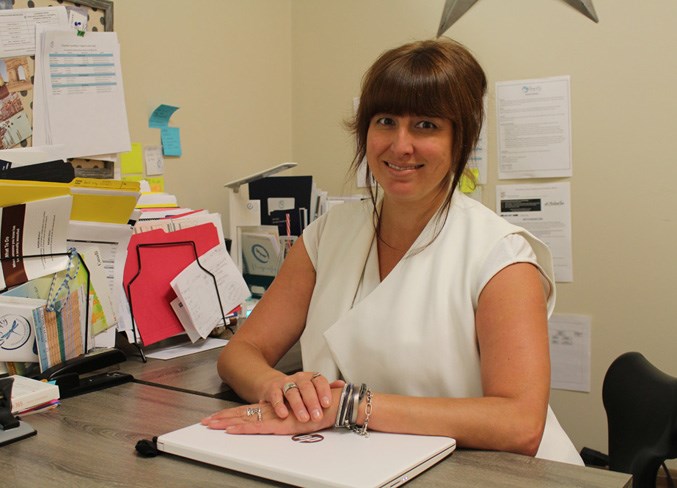While steps are being taken to break down the barriers for victims of sexual violence to come forward, local groups feel there’s still a long ways to go when addressing the issue.
Since the province released the Best Practice Guide for Law Enforcement Investigations into Sexual Violence in May 2018, a means of ensuring law enforcement has a cohesive way of investigating reports and knowing what resources are available, it has seen a few local impacts for those reaching out for support.
The Dragonfly Counselling and Support Centre saw an increase in their intake numbers since they opened their doors in 2014. Since the guide was released last year, the centre’s counselling clients went from 455 to 729.
In 2018, Bonnyville RCMP investigated 12 reports of sexual assault within the Town of Bonnyville. There were three reported in the MD. Up until June of this year, there have been nine recorded cases in town and three in the MD.
“Throughout my career, the focus has always been on the victim,” noted Sgt. Kim Hillier. “We’re very clear and careful to ensure that the victim isn’t victimized every time we have to investigate.”
Cheryl Bujold, executive director for the Dragonfly Centre, noted the guide is a more “victim-centred approach and recognizes that these cases are complex.”
“It’s a sensitive situation, and it deserves the seriousness and respect because it puts survivors and the human rights of the individuals in the forefront,” she continued.
According to Bujold, up to 97 per cent of sexual assaults aren’t reported to police and it’s considered the most under reported crime in Canada.
Involving outside organizations, such as the Dragonfly Centre and the Bonnyville Victim Services Unit (VSU), is an important aspect to any investigation, Hillier stressed.
“Although it’s a criminal offence, sometimes the victim also has the option to not go that route and the victim is in control in this type of investigation… There are options and other resources available. We just want people to reach out, make use of the resources available, and that will help them make a decision as far as if they want to proceed with criminal (charges).”
Debbie Winstone, program manager for the Bonnyville VSU, noted it’s a difficult and lengthy process when someone comes forward.
“They’re coming in and reporting it, and not by any intention of the RCMP, they’re just going through it again and being revictimized… Any little bit of information and knowledge that can be passed on to make it easier for the victim is an asset,” continued Winstone.
Bujold said, “Sometimes, unknowingly, our organizational practices, such as everything from the RCMP to first responders in hospitals, they can be at risk of compounding trauma through revictimization, which can worsen the health consequences of survivors.”
Cultural attitudes about sexual violence, stigma surrounding the issue, and feeling intense stress are just some of the reasons a victim may not come forward.
“There’s a lot of health consequences about being revictimized while waiting for court and going through the process,” Bujold explained. “They have to relive the situation multiple times, and tell their story multiple times. There can be personal repercussions of reporting in their social lives, their private life is put on display for others, and it can impact every aspect of their lives.”
Coming face-to-face with their attacker is an experience Winstone described as incredibly difficult for a victim.
“This person has done that act that is just so personal, and you’re having to explain that (in court). I can’t imagine how that would be or feel,” she added.
While a report can be made regarding a sexual assault anytime after the offence takes place, Hillier said the longer a person waits the more difficult an investigation can be due to memories of those involved becoming unclear.
“Obviously, the sooner the better. But, in the same token, we need to be cognizant that some people just aren’t able to relive that story within the first six months. We do take historical complaints often, and it’s unfortunate that sometimes those complaints aren’t as easy to prosecute and sometimes they don’t offer the same type of closure to the victim when it’s reported historically.”
With this in mind, ensuring there are supports at the ready is crucial for survivors, even if they don’t decide to proceed with a criminal case.
“The first response to a disclosure of sexual violence is the most crucial, because research shows that it actually dictates if the survivor will have a positive or negative healing journey,” explained Bujold.
While she believes there’s still a long way to go when it comes to education surrounding sexual violence, Bujold is optimistic with the changes she’s seen so far on a provincial and local level.
“It’s very positive because we’re living in a community where we’re recognizing more needs to be done to address these specialized cases, and people are taking steps to reduce the impacts to those coming forward… We have to start somewhere.”



